Iran Dismisses Dozens Of Managers Over Performance Discrepancy
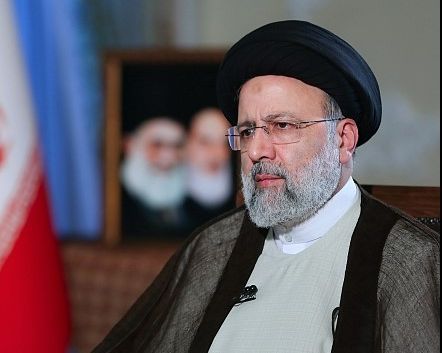
Iran's government has recently ousted numerous managers from their positions, citing "incompatibility in [their] performance with the discourse of the presidential administration."

Iran's government has recently ousted numerous managers from their positions, citing "incompatibility in [their] performance with the discourse of the presidential administration."
Head of the Special Inspection Office of the presidential office, Hassan Darvishian, has announced the dismissal of "90 managers of executive organizations," noting that some were let go due to their actions not aligning with the government's positions.
Darvishian did not provide a breakdown of the dismissals based on the reasons he mentioned.
Hardliners dominating the Iranian government have been expelling officials and university professors who do not belong to their ranks, in a policy they call "purification."
The discourse of the Raisi administration, as outlined on the president’s website, is titled "Imam and Leadership Discourse," with the document referred to as the "Statement of the Second Step of the Revolution." The statement, issued by Supreme Leader Ali Khamenei in 2019 on the fortieth anniversary of the 1979 Revolution, has been scrutinized by critics who highlight the role of the Islamic Revolutionary Guard Corps (IRGC) in Iran's foreign policy as a central theme.
In an interview with ILNA, Darvishian claimed that the discourse of Ebrahim Raisi's government emphasizes "purity, anti-corruption, and populism." He stated that decisions would be made if the performance of managers contradicts the discourse, emphasizing that significant actions have already been taken in this regard.
Despite the Raisi administration's assertions regarding the fight against corruption, numerous reports have surfaced revealing corruption within government departments and officials. One significant case was the Debsh Tea scandal, where the company profited from the sale of cheap foreign currency allocated by the government for importing tea and machinery at higher rates in the black market between 2019 and 2022.
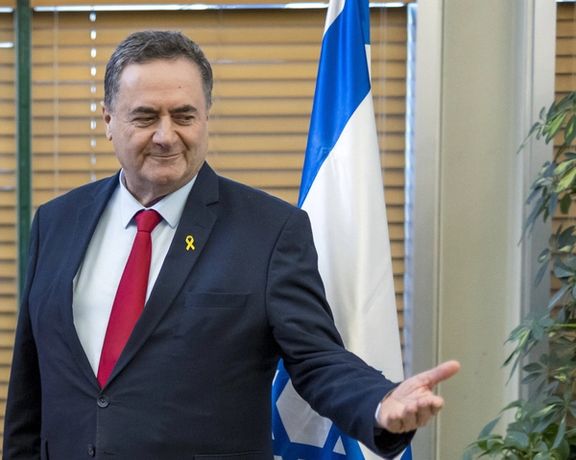
In a message to the United Nations Security Council, Israeli Foreign Minister Israel Katz has highlighted Iran's escalated weapons deliveries to Hezbollah through Syria.
Katz underscored Israel's right to protect its territory and citizens against such threats, emphasizing the urgent need for action.
Addressing the UNSC on Thursday, Katz condemned Iran's disregard for international resolutions, particularly citing violations of UNSC resolutions.
"Over the past months, while Israel is engaged in an ongoing armed conflict on numerous fronts, Iran is accelerating the pace of its weapons transfers to Hezbollah," wrote the foreign minister. "Iran is doing so by ground, using the porous Syrian-Lebanese border, as well as by air and sea, in violation of UNSCR 1701."
The shipments detailed in Katz's letter include components for air defense systems, various drones such as the Shahed-101 and Shahed-136, and diverse missile types including the Mini-Ababil and the 358 anti-aircraft interceptor. Katz highlighted specific units involved in the transfers, including the Islamic Revolutionary Guards Corps (IRGC) and Hezbollah factions, while also noting instances where Israel intercepted the shipments.
Responding to inquiries regarding the letter, Katz took to social media platform X on Friday, reiterating Israel's firm stance. "Iran is the head of the snake. We will not be patient much longer for a diplomatic solution in the north. If the dramatic intelligence information we revealed to the Security Council does not bring about change - we will not hesitate to act."
Iran provides significant support to Hezbollah, as well as several other groups in the region designated as terrorist organizations, including Hamas and Islamic Jihad in Gaza, and the Houthis in Yemen.
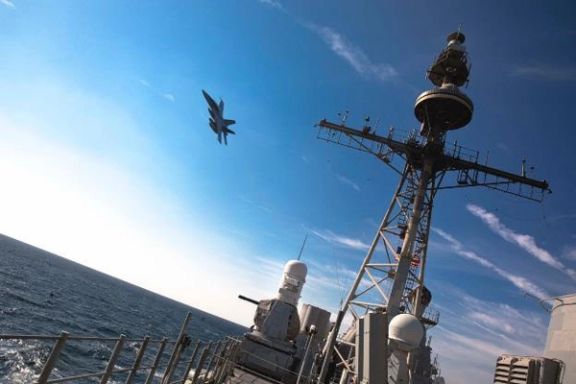
A commercial ship hit by Iran-backed Houthis on Monday has created an oil slick of almost 30 km in the Red Sea as it struggles to stay afloat despite damages.
The UK-owned Belize-flagged vessel, Rubymar, is “anchored but slowly taking on water,” according to the US military. It is carrying “over 41,000 tons of fertilizer,” which makes it a huge floating hazard, since a potential spillage could worsen the “environmental disaster” caused by the vast oil slick.
“The Houthis continue to demonstrate disregard for the regional impact of their indiscriminate attacks, threatening the fishing industry, coastal communities, and imports of food supplies,” read the statement by CENTCOM.
The Houthis, armed by Iran, have targeted dozens of ships since last November, hitting at least 20 and scaring away many more. They say their attacks are solely in support of Palestinians and in response to Israel’s onslaught on Gaza. However, in recent days, they have officially added British and American ships to their list of “legitimate” targets. The Houthi attacks began days after Iran's ruler Ali Khamenei called on Muslim nations to blockade Israel.
The two countries launched a joint operation against the Houthis on January 11, hitting dozens of targets in three rounds of airstrikes –the last of which took place this week. But neither the joint operation nor the near-daily, unilateral attacks by the US military have succeeded in stopping the Houthis.
President Biden and his team seem to be struggling to find the appropriate response, perhaps because they are reluctant to confront Iran’s Revolutionary Guards IRGC), which arms, trains and is even present on the ground, “serving side by side” Houthi forces.
“We know that the Houthis maintain a large arsenal,” Pentagon’s deputy press secretary Sabrina Singh told reporters Thursday, hours after yet another ship was hit by Houthis. “They are very capable, they have sophisticated weapons, and that’s because they continue to get them from Iran.”
Iranian officials have never denied their support for the Houthis, but they say they have no operational control over the group. Some experts suggest, however, that the Houthis rely on Iran for picking their targets. The information required for such operations, they say, is gathered by the IRGC, and by the spy ship Behshad, in particular.
Curiously, the number of Houthi attacks in the Red Sea has sharply risen in the past few days, coinciding with Behshad’s return to duty after 17 days docking at Djibouti port near a Chinese military base on shore. More Houthi attacks have been recorded in the last few days than in the previous 3 weeks combined.
The Biden administration issued a statement Wednesday, “condemning” the Houthis’ “reckless and indiscriminate” attack on commercial vessels in the Red Sea. “The Houthis are behaving like a terrorist organization,” the statement read, “and contrary to what the Houthis may attempt to claim, their attacks do nothing to help the Palestinians.”
Strong words aside, the administration’s plan for stopping the Houthis is unclear. A CNN report Friday suggested that “the group is continuing to fortify its weapons stockpile inside Yemen,” quoting a US official speaking on condition of anonymity.
US forces in the region have stopped some Iranian weapons getting to Houthi-controlled areas of Yemen, but some shipments have surely slipped through the net –and more will almost certainly do so, as long as the regime in Tehran sees no harm in trying,
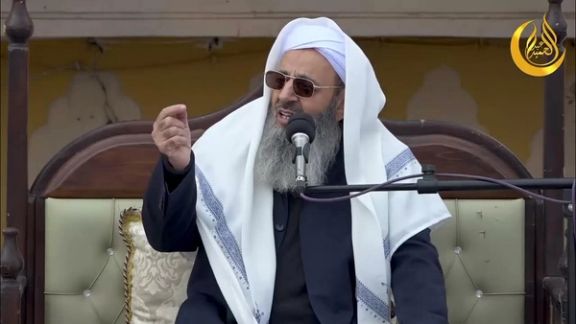
Iran’s top Sunni leader has reiterated concerns over the rising number of executions, stating that repression has failed to deter people from pursuing their demands.
During his Friday sermon in Zahedan, capital of southeastern Sistan-Baluchestan Province, Mowlavi Abdolhamid called for a halt to political and drug-related executions, that has shocked not only Iranians but also the entire world.
The majority of executions in Iran are related to drug-related convictions. Abdolhamid has repeatedly said that lack of jobs in his province and some other impoverished areas is the prime reason people are driven to smuggling fuel, minor drug-related offences, or drug trafficking.
In Iran gasoline and especially diesel are extremely cheap (around 10 US cents per gallon) due to heavy government subsidization. This leads to smuggling of fuel to neighboring countries such as Pakistan. Many of these individuals, the cleric said, end up in prison or even executed.
Referring to political charges against protesters that potentially lead to the death penalty, he highlighted that during the time of the Prophet of Islam, executions were as rare as the fingers of one hand, and those were related to "retribution."
"The Prophet did not even execute those who provided information to the enemies and said that if I do this, they will say that he kills his own people and is not loyal to them," Abdolhamid told his congregation.
Since December 2022, at least nine protesters have been executed in connection with the Women, Life, Freedom protests, and the ensuing crackdown. According to Human Rights Activists News Agency, in 2023 alone, at least 791 citizens, including 25 women and two juvenile offenders, were executed -- a 33 percent increase compared to the previous year. Additionally, reports from Amnesty International revealed that from January 2012 to July 2023, over 5,000 individuals, including 57 children, were executed in Iran.
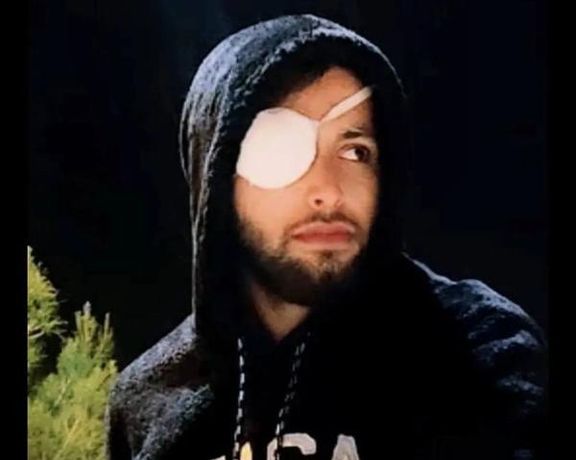
Hossein Hosseinpour, a young protestor who lost an eye after being shot by security forces during a crackdown on 2022 protests, has been sentenced to one year in prison by the Revolutionary Court.
According to the Human Rights Activists News Agency (HRANA), the sentence was reduced to 11 months after Hosseinpour agreed not to appeal the verdict.
The report said that the sentence was issued on the charge of "propaganda against the regime" and is related to posts he shared on social media.
Hosseinpour was shot in the right eye with a shotgun pellet during the nationwide protests in Mahabad in October 2022. He has undergone four surgeries so far.
In early September 2023, he was arrested by intelligence agents. After the interrogation process in the Soroush detention center in Shiraz, he was transferred to the Adel Abad prison in the same city.
In late January 2024, he was transferred to Shiraz Prison No. 2, also known as the Nezam prison. He has reportedly contracted an eye infection during his detention and continues to be denied medical care.
In recent months, there have been reports of arrests of or summonses to protesters who lost their eyes in the 2022-2023 protests. According to these reports, Amir Shahvelayati and Matin Hasani, two protesters who lost their eyes in the protests, were arrested in Tehran and Bukan, in West Azarbaijan, in January. Also, Mahbano (Kosar) Khoshnoudi, another protester who lost an eye in the nationwide protests, reported that she had been repeatedly summoned by security forces.
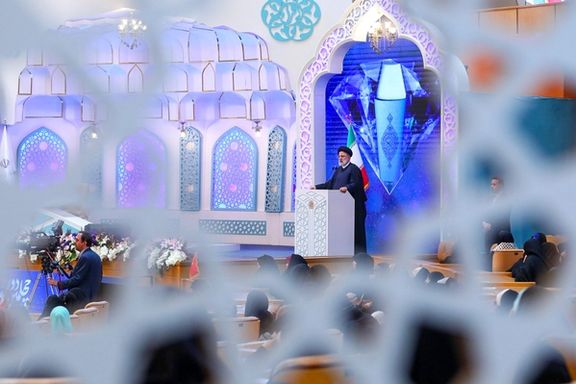
An official has disclosed that President Ebrahim Raisi is among three individuals designated by Supreme Leader Ali Khamenei to select the Islamic Republic's future leader.
Entekhab website on Wednesday quoted Hassan Ameli, a member of the Assembly of Experts that Raisi is one of the members of a committee of three appointed by Khamenei to determine his successor. Ameli said that he himself is also on the committee. Earlier, Rahim Tavakol, another Assembly member had revealed his membership in the committee.
This suggests Khamenei's confidence in Raisi's victory in the upcoming March 1 Assembly of Experts election. Raisi, the sole candidate from South Khorasan Province until last week, now faces a second candidate, for the sake of formality.
The new candidate, Hassan Rouhbakhsh has told the press in Iran that he has no intention of competing with Raisi, and that he has taken part in the election to end the embarrassing situation for Raisi and to thank the Islamic Republic for all that it has given to him during the past years.
All signs indicate that Raisi is leading the succession committee, as the other two clerics have remained relatively unknown to the public and media, except for the few thousand locals who elected them to the Assembly. Ameli, in his interview with Entekhab, disclosed that during committee meetings, Khamenei issues orders and provides advice to Raisi.
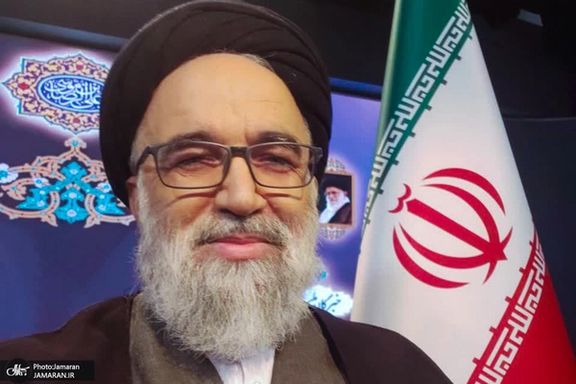
What remains unclear is the role of the remaining 85 members of the Assembly of Experts if the committee of three is tasked with "finding" the successor to the Islamic Republic's leadership. Neither Khamenei nor the committee has provided an explanation for this matter. The Assembly has the constitutional task of selecting a Supreme Leader.
Ameli emphasized that the committee's "sensitive task" makes it the most crucial committee within the Assembly of Experts. Several years ago, Ayatollah Mohsen Araki, who initially revealed the existence of the succession committee, stated that due to the sensitive nature of their mission, the committee's members remain unknown to the rest of the Assembly.
Other members of the Assembly of Experts typically refrain from discussing the issue with the media, likely because they have limited knowledge about it. Those who do comment often make humorous or bizarre remarks.
Ahmad Beheshti, a cleric from Fars Province in the Assembly, expressed his desire for Khamenei's long life in a recent interview. He hoped that Khamenei's extended tenure would obviate the need for the Assembly to select another leader.
Another member of the Assembly expressed a different perspective, stating his wish for the Shiite hidden Imam to emerge after some 15 centuries of occultation and assume leadership, thus eliminating the need for a successor to Khamenei. Behesti also expressed hope for an uneventful tenure during both the current and future rounds of the Assembly. Reflecting on his 15-year tenure as an AoE member, he mentioned that he has consistently prayed that circumstances would not require the consideration of a replacement for Khamenei.
While the personality cult gives him the likeness of a divine status among his supporters, and Assembly members often deny that part of their responsibility is to keep checks and balances on Khamenei's performance, Mahmoud Mohammadi Araghi, a member of the Assembly, has claimed that unlike other countries, the Iranian people can take the leader to court if necessary.
This comes while many in Iran, including former regime insider Abolfazl Ghadiani say they will not take part in the March 1 parliamentary and Assembly of Experts elections and will encourage others to do likewise.